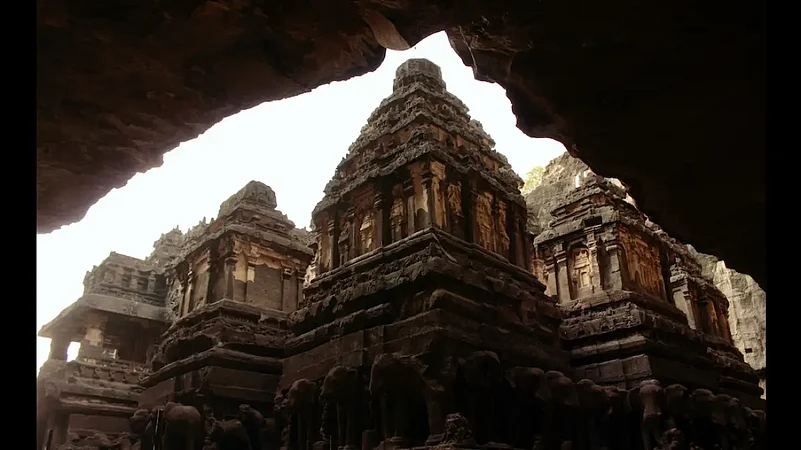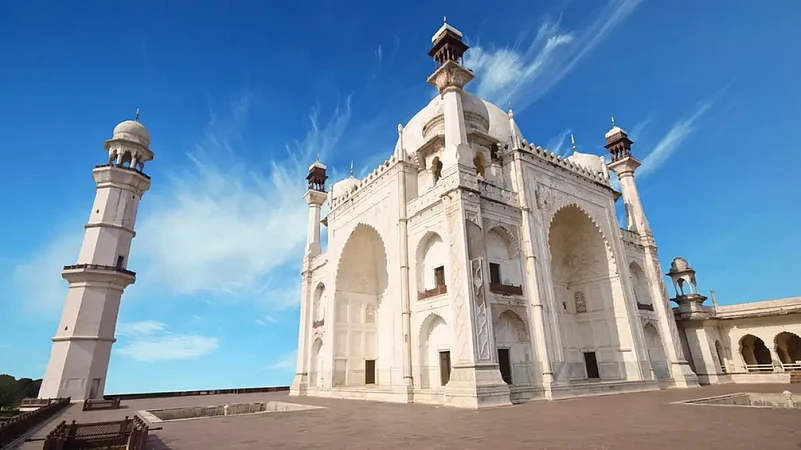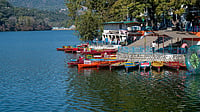Laced with history, architecture and culture, Aurangabad is often heard of when talking about the rock cut Ajanta and Ellora caves. However, this Maharashtrian city has more to offer when it comes to showcasing India’s rich historical past. If you find yourself in the city for just 24 hours, here is a handy guide on how to make the most of your time:
Explore the Ellora Caves

We suggest getting an early start to the day and heading straight to the Ellora Caves, a short drive away from the city. While this might seem the most obvious thing to do, one can absolutely not miss out on this Unesco Heritage Site. Not only because it is a monolithic structure, meaning it has been carved from a single rock in a basalt cliff, but also because it is one of the largest rock cut cave systems in the world — with over 100 caves within the complex. Home to Hindu, Buddhist and Jain caves, some caves here narrate mythological stories while the others were once resting spaces for the pilgrims. These caves today bring the ancient civilisations alive along with demonstrating the spirit of tolerance that existed in the country at the time.
Head to Daulatabad Fort

Before heading towards your next destination, stop for a quick breakfast at one of the small, local eateries outside the cave system. These hole-in-the-wall shops have a sitting arrangement under the vast canopy of trees and serve some local delicacies, along with the much sought after (during summers) sugarcane juice. If you’re looking for a proper establishment, a short walk away you’ll find some restaurants. Next in line is the massive Daulatabad or the Deogiri Fort. This citadel stands on a conical hill and most part of what one sees today was built by the Yadava dynasty rulers. While the fort spots a complex arrangement of entry passages and false doors, in actuality there is only a single point of entry and exit to the fort. Daulatabad was once the capital city, but today gains much of its income from tourism.
Visit the Bibi ka Maqbara

Often known as the Mini Taj of the Deccan, Bibi ka Maqbara spots a stark resemblance to the Taj Mahal. It is the burial spot of Aurangzeb’s wife, Rabia-ud-Durrani. Similarities to the Taj can be spotted here in the smallest of details — whether it's the intricate patterns on the tombs, or the Mughal-style gardens with fountains. Commissioned in 1660, this is the second largest structure built by Aurangzeb. Post this we suggest going for an elaborate lunch affair at the Naivedya Thali restaurant and later snoozing and resting the afternoon out.
Soneri Mahal
Although Aurangabad is not a crowded city in most aspects, the locals when looking for a respite with a touch of history, frequent the Soneri Mahal. Located a short and picturesque drive away in the university area, Sonerii Mahal is an example of history in ruins. Built by Pahar SIngh, a Bundelkhand chief, the former residence now serves as a small history museum. Known for showing off his wealth to people, Pahar SIngh painted the walls of this palace with paints based on gold and hence the name. Located at the foothills of the Aurangabad Caves, the palace makes for a quick and quiet pit stop for all travellers.
Shop for authentic handicrafts
When in Aurangabad shopping for handicrafts is a must. And what better way to begin than at the handloom of Himroo silk. With each knot handcrafted on a manual loom, this art form was brought to Aurangabad when Tughlaq shifted his capital and since then it has found a permanent home here. Apart from this one should also look out for bidri art. Although prominent in the Bidar region in Karnataka, bidri art also finds a home here in Aurangabad in the form of souvenirs.


























